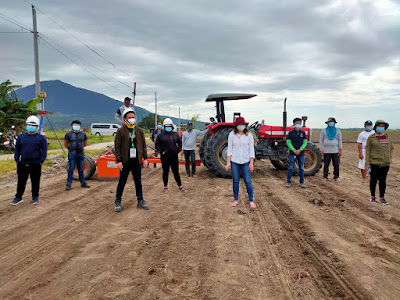Rice production in the Philippines is constantly faced with threats to food security due to climate change and the COVID-19 pandemic. One of the major challenges to Philippine agriculture is the practice of unsustainable land management such as inadequately leveled fields. An improperly leveled field causes uneven water distribution that leads to poor crop establishment and the inefficient use of seed, water, fertilizer, and pesticides. However, this can be addressed by using laser land leveling technology.
Pages
▼
Thursday, November 26, 2020
Training boosts expertise of Indonesian agricultural researchers in using seasonal climate prediction-based app
 |
| ICRR researchers participate from ICRR’s meeting room. ICRR also hosted the videoconferencing held via Zoom. Photo: Suhartini, ICRR |
West Java, Indonesia–Researchers from various agencies under the Indonesian Agency for Agricultural Research and Development (IAARD) participated in a face-to-face and virtual training in the development, operation, and maintenance of the Weather-rice-nutrient integrated decision support system (WeRise) from 16 to 20 November 2020. These agencies have been identified for the uptake and dissemination of WeRise in Indonesia (Bugayong, et al.).
Wednesday, November 11, 2020
Peer teaching approach helps learners become WeRise experts
West Nusa Tenggara, Indonesia – “I hear and I forget, I see and I remember, I do and I understand.”
Studies have shown that learning retention is better when students teach what they have learned. Peer teaching is a strategy used by the International Rice Research Institute (IRRI) - Japan Collaborative Research Project (IJCRP) in its capacity-building program for agricultural extension workers (AEWs) to deliver timely and accurate information to rainfed rice farmers through the use of the Weather-rice-nutrient integrated decision support system (WeRise).


